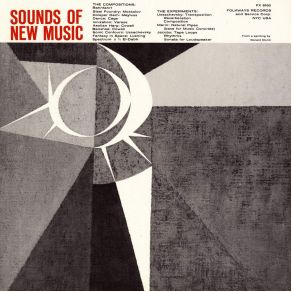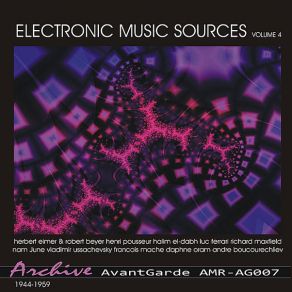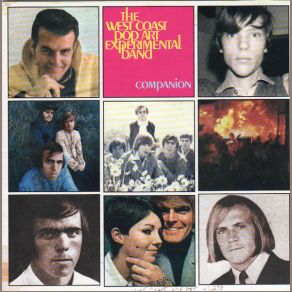Halim El-Dabh
Wikimp3 information about the music of Halim El-Dabh. On our website we have 0 albums and 4 collections of artist Halim El-Dabh. You can find useful information and download songs of this artist.
Biography
[Edit]Halim El-Dabh's musical career began in the early '40s when he was virtually kidnapped by Prince Hassan Tussun of Egypt, who had heard El-Dabh's composition "It Is Dark and Damp on the Front" on the radio and felt compelled to meet its composer. Up to that point, El-Dabh viewed his compositional work more as a hobby, focusing instead on his career in agriculture. After he and the prince had an informal jam session up at the palace, El-Dabh began to consider more seriously a career in music.
A major turning point in El-Dabh's career occurred when, in 1944, he discovered a wire recorder machine at the Middle East Radio Station in Cairo. He was fascinated with the machine and began to use it as a means for creating music. This technique was employed four years later by Pierre Schaeffer at the first performance of musique concrète in 1948 (after the invention of recording tape), which is generally hailed as being the first manipulated sound performance.
Another turning point in his career came when, in 1947, he visited the American Embassy in Cairo, hoping to find music by American composers. What he received instead were recordings of Native American music, which influenced him significantly more than the academic composers of the time. The discovery also led him to turn down an opportunity to study at Juilliard three years later in favor of studying the music of the Pueblo, Zuni, and Hopi peoples in New Mexico.
Now in the United States and studying at the University of New Mexico, El-Dabh spent two summers working with Aaron Copland and Irving Fine at the Berkshire Music Center in Tanglewood, MA. He also had premieres of his work performed at Juilliard (where he fell into the company and friendship of John Cage).
In 1955, El-Dabh was able to demonstrate some of his tape manipulation experiments in the presence of electronic music pioneers Vladimir Ussachevsky and Otto Luening, which later led to an invitation for El-Dabh to work with them at the then-new Columbia-Princeton Electronic Music Center in New York. An excerpt from his electronic opera, Leiyla and the Poet, appears on the 1964 Columbia Masterworks recording The Columbia-Princeton Electronic Music Center.
In 1969, El-Dabh joined the faculty of the Glauser School of Music at Kent State University. On May 4, 1970, national guardsmen on the Kent State campus shot into a crowd of students killing four and injuring nine. Strongly affected by this tragedy, El-Dabh composed his opera, Opera Flies, as a statement about the incident, which premiered within one year of the incident in both New York and Washington, as well as on the Kent State campus.
Since that time, El-Dabh has composed and taught at Kent, as well as performing and leading various ensembles (notably the Kent State University African Ensemble). He retired from Kent State University in 1991, but still continued to teach on an occasional basis.
El-Dabh holds degrees from Cairo University, the New England Conservatory of Music, and Brandeis University, and has also taught at Haile Selassie University in Ethiopia, Kinshasa University in Zaire (Congo), and Howard University. His numerous grants and awards include two Guggenheim Fellowships (1959-1960 and 1961-1962), two Fulbright Fellowships (1950 and 1967), a Rockefeller Fellowship (1961), a Meet-the-Composer grant (1999), and an Ohio Arts Council grant (2000). In 1959, he played the solo part in the premiere of his Fantasia-Tahmeel: Concerto for Derabucca and Strings (the derabucca is an Egyptian drum), with the American Symphony Orchestra under the direction of Leopold Stokowski.
A full-length release of El-Dabh's early electronic recordings entitled Crossing Into the Electric Magnetic was made released on Without Fear Recordings in 2000, put together by Mike Hovancsek and David Badagnani. In addition, an exhaustive biography of El-Dabh by Kent State University professor Denise Seachrist is being published by Kent State University Press. ~ Mark W. B. Allender, Rovi
Collections
Title: An Anthology of Noise & Electronic Music, Vol. 4
Genre: Electronica
Title: Sounds of New Music
Genre:
Title: Electronic Music Sources Volume 4
Genre: Electronica, Alternative
Title: The West Coast Pop Art Experimental Band Companion
Genre: Rock
Featuring albums
Title: An anthology of noise and electronic music vol.4
Artist: Various Artists
Genre: Electronica, Dancefloor





